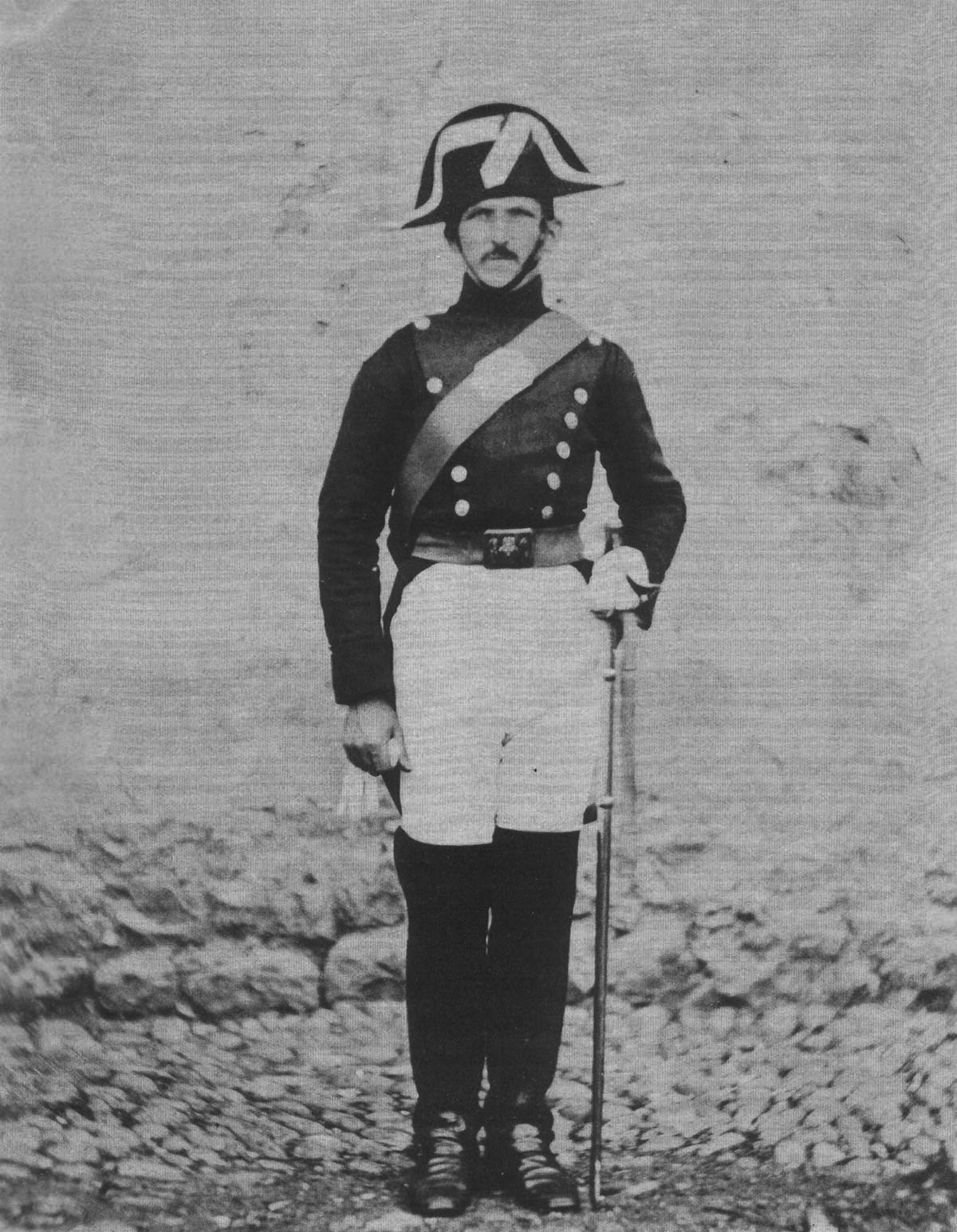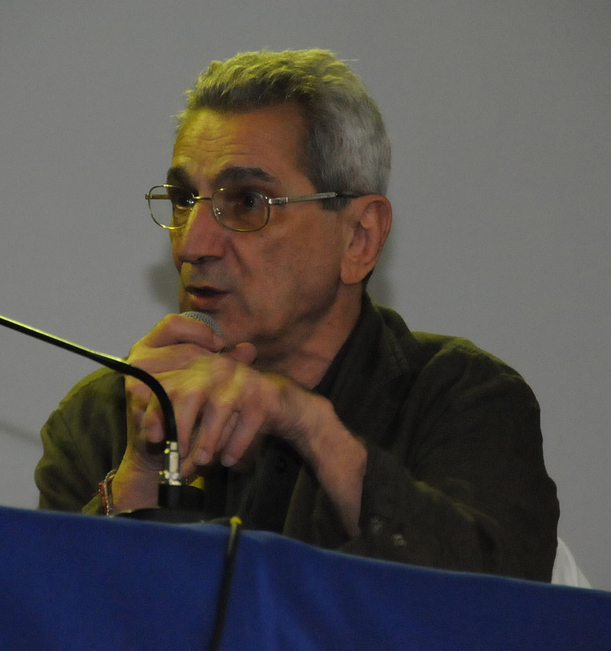|
Comandos Autónomos Anticapitalistas
The Comandos Autónomos Anticapitalistas (CAA or CCAA) ( eu, Komando Autonomo Antikapitalistak; "Autonomous Anticapitalist Commandos") were a Basque armed group in Spain with Autonomist Marxist politics, defined as an anarchistic breakaway of ETA. The group was very active in the 1970s and 1980s. The most important attack was the assassination of Spanish Socialist Workers Party Senator Enrique Casas in 1984, which was rejected by all the political spectrum including ETA, which at the time, rejected violence against politicians. The commandos who killed Casas were called Mendeku (''revenge'' in Basque language). Soon after, one of the few operating CAA commandos was ambushed by the Guardia Civil at the bay of Pasaia, killing four – all but one. The police tried to link another group the called ''Mendeku'' to the CAA, after an attack against the headquarters of the Spanish Socialist Workers' Party in Portugalete Portugalete is a town lying to the west of Bilbao in the pro ... [...More Info...] [...Related Items...] OR: [Wikipedia] [Google] [Baidu] |
Basque People
The Basques ( or ; eu, euskaldunak ; es, vascos ; french: basques ) are a Southwestern European ethnic group, characterised by the Basque language, a common culture and shared genetic ancestry to the ancient Vascones and Aquitanians. Basques are indigenous to, and primarily inhabit, an area traditionally known as the Basque Country ( eu, Euskal Herria) — a region that is located around the western end of the Pyrenees on the coast of the Bay of Biscay and straddles parts of north-central Spain and south-western France. Etymology The English word ''Basque'' may be pronounced or and derives from the French ''Basque'' (), itself derived from Gascon ''Basco'' (pronounced ), cognate with Spanish ''Vasco ''(pronounced ). Those, in turn, come from Latin ''Vascō'' (pronounced ; plural '' Vascōnes''—see history section below). The Latin generally evolved into the bilabials and in Gascon and Spanish, probably under the influence of Basque and the related Aquitani ... [...More Info...] [...Related Items...] OR: [Wikipedia] [Google] [Baidu] |
Pasaia
Pasaia ( es, Pasajes) is a town and municipality located in the province of Gipuzkoa in the Basque Autonomous Community of northern Spain. It is a fishing community, commercial port and the birthplace of the famous admiral Blas de Lezo. Pasaia lies approximately east of Donostia's centre, lying at the foot of Mount Ulia and the Jaizkibel massif. The municipality numbers 16,056 inhabitants ( estimates), clustering around the Bay of Pasaia in four nuclei, namely Pasai San Pedro, Pasai San Juan (or Donibane in Basque), Antxo and Trintxerpe, with each part showing distinctive features. History Pasaia is mentioned in documentary records for the first time in 1203 as Oiarso. The name of the village was later changed to "Pasage", which means 'port' in Gascon. The Gascons had come to inhabit the area side by side with the Basque people at the beginning of the 13th century. The current name is first attested in the 15th century, when it was called the above "Pasage". It was a major ... [...More Info...] [...Related Items...] OR: [Wikipedia] [Google] [Baidu] |
Defunct Anarchist Militant Groups
{{Disambiguation ...
Defunct (no longer in use or active) may refer to: * ''Defunct'' (video game), 2014 * Zombie process or defunct process, in Unix-like operating systems See also * * :Former entities * End-of-life product * Obsolescence Obsolescence is the state of being which occurs when an object, service, or practice is no longer maintained or required even though it may still be in good working order. It usually happens when something that is more efficient or less risky r ... [...More Info...] [...Related Items...] OR: [Wikipedia] [Google] [Baidu] |
Basque Politics
The Basque Country (; eu, Euskadi ; es, País Vasco ), also called Basque Autonomous Community ( eu, Euskal Autonomia Erkidegoa, links=no, EAE; es, Comunidad Autónoma del País Vasco, links=no, CAPV), is an autonomous community of Spain. It includes the provinces (and historical territories) of Álava, Biscay, and Gipuzkoa, located in the north of the Iberian Peninsula, bordering on the autonomous communities of Cantabria, Castile and León, La Rioja, and Navarre, and the French region of Nouvelle-Aquitaine. The Basque Country or Basque Autonomous Community is enshrined as a 'nationality' within the Spanish State in its 1979 statute of autonomy, pursuant to the administrative acquis laid out in the 1978 Spanish Constitution. The statute provides the legal framework for the development of the Basque people on Spanish soil. Navarre, which had narrowly rejected a joint statute with Gipuzkoa, Álava and Biscay in 1932, became a full-fledged foral autonomous community in 1982. ... [...More Info...] [...Related Items...] OR: [Wikipedia] [Google] [Baidu] |
Portugalete
Portugalete is a town lying to the west of Bilbao in the province of Biscay in the Autonomous Community of Basque Country, northern Spain. The town has 45,766 inhabitants (2019 census) and is part of Bilbao's metropolitan area. It is located at the mouth of the Estuary of Bilbao, on the left bank. Its land area is only 3.21 km², resulting in a population density of 15,908.4 persons/km², the fifth-most densely populated municipality in Spain (following Mislata, L'Hospitalet de Llobregat, Benetússer, and Santa Coloma de Gramenet). In 1300 Portugalete became the main competitor port for Bilbao, but it lost its predominant position in 1511 when the trade privileges were granted to the Port of Bilbao instead of Portugalete. Despite its name, it is not near the Spanish border with Portugal and its name is not etymologically related with that country: it derives, instead, from a phonetic adaptation of its Basque name (Portu-Ugaldeta) (edges of the port) to the Spanish languag ... [...More Info...] [...Related Items...] OR: [Wikipedia] [Google] [Baidu] |
Spanish Socialist Workers' Party
The Spanish Socialist Workers' Party ( es, Partido Socialista Obrero Español ; PSOE ) is a social-democraticThe PSOE is described as a social-democratic party by numerous sources: * * * * political party in Spain. The PSOE has been in government longer than any other political party in modern democratic Spain, namely from 1982 to 1996 under Felipe González; from 2004 to 2011 under José Luis Rodríguez Zapatero; and currently since 2018 under Pedro Sánchez. The PSOE was founded in 1879, making it the oldest party currently active in Spain. The PSOE played a key role during the Second Spanish Republic, being part of coalition government from 1931 to 1933 and from 1936 to 1939, when the Republic was defeated by Francisco Franco in the Spanish Civil War. The party was then banned under Franco's dictatorship and its members and leaders were persecuted or exiled. The PSOE was only legalised again in 1977. Historically a Marxist party, it abandoned Marxism in 1979. Just like ... [...More Info...] [...Related Items...] OR: [Wikipedia] [Google] [Baidu] |
Guardia Civil
The Civil Guard ( es, Guardia Civil, link=no; ) is the oldest law enforcement agency in Spain and is one of two national police forces. As a national gendarmerie force, it is military in nature and is responsible for civil policing under the authority of both the Ministry of the Interior and the Ministry of Defence. The role of the Ministry of Defence is limited except in times of war when the Ministry has exclusive authority. The corps is colloquially known as the ' (reputable). In annual surveys, it generally ranks as the national institution most valued by Spaniards, closely followed by other law enforcement agencies and the armed forces. It has both a regular national role and undertakes specific foreign peacekeeping missions and is part of the European Gendarmerie Force. As a national gendarmerie force, the Civil Guard was modelled on the French National Gendarmerie and has many similarities. As part of its daily duties, the Civil Guard patrols and investigates crimes in ... [...More Info...] [...Related Items...] OR: [Wikipedia] [Google] [Baidu] |
Autonomism
Autonomism, also known as autonomist Marxism is an anti-capitalist left-wing political and social movement and theory. As a theoretical system, it first emerged in Italy in the 1960s from workerism (). Later, post-Marxist and anarchist tendencies became significant after influence from the Situationists, the failure of Italian far-left movements in the 1970s, and the emergence of a number of important theorists including Antonio Negri, who had contributed to the 1969 founding of as well as Mario Tronti, Paolo Virno and Franco "Bifo" Berardi. George Katsiaficas summarizes the forms of autonomous movements saying that "In contrast to the centralized decisions and hierarchical authority structures of modern institutions, autonomous social movements involve people directly in decisions affecting their everyday lives, seeking to expand democracy and help individuals break free of political structures and behavior patterns imposed from the outside". This has involved a call for the ... [...More Info...] [...Related Items...] OR: [Wikipedia] [Google] [Baidu] |
Enrique Casas
Enrique () is the Spanish variant of the given name Heinrich of Germanic origin. Equivalents in other languages are Henry (English), Enric (Catalan), Enrico (Italian), Henrik (Swedish, Danish, and Norwegian), Heinrich (German), Hendrik, Henk (Dutch), Henri (French), and Henrique (Portuguese). Common nicknames of Enrique are Kiki, Kiko, Kike, Rick, Ricky, and Quique. Enrique is also a surname. A variant surname is '' Enriquez'' (son of Enrique). Notable people with the name include: Given name * Enrique of Malacca (fl. 1511–1521), Malay slave who may have been the first person to travel around the world * Enrique Aguirre (born 1979), Argentine athlete * Enrique Álvarez Félix (1934–1996), Mexican actor * Enrique Bolaños (1928–2021), President of Nicaragua from 2002 to 2007 * Enrique Bunbury (born 1967), Spanish singer and band member of Heroes Del Silencio * Enrique Campos (born 1961), Venezuelan road bicycle racer * Enrique Castillo (born 1949), American actor * Enri ... [...More Info...] [...Related Items...] OR: [Wikipedia] [Google] [Baidu] |





